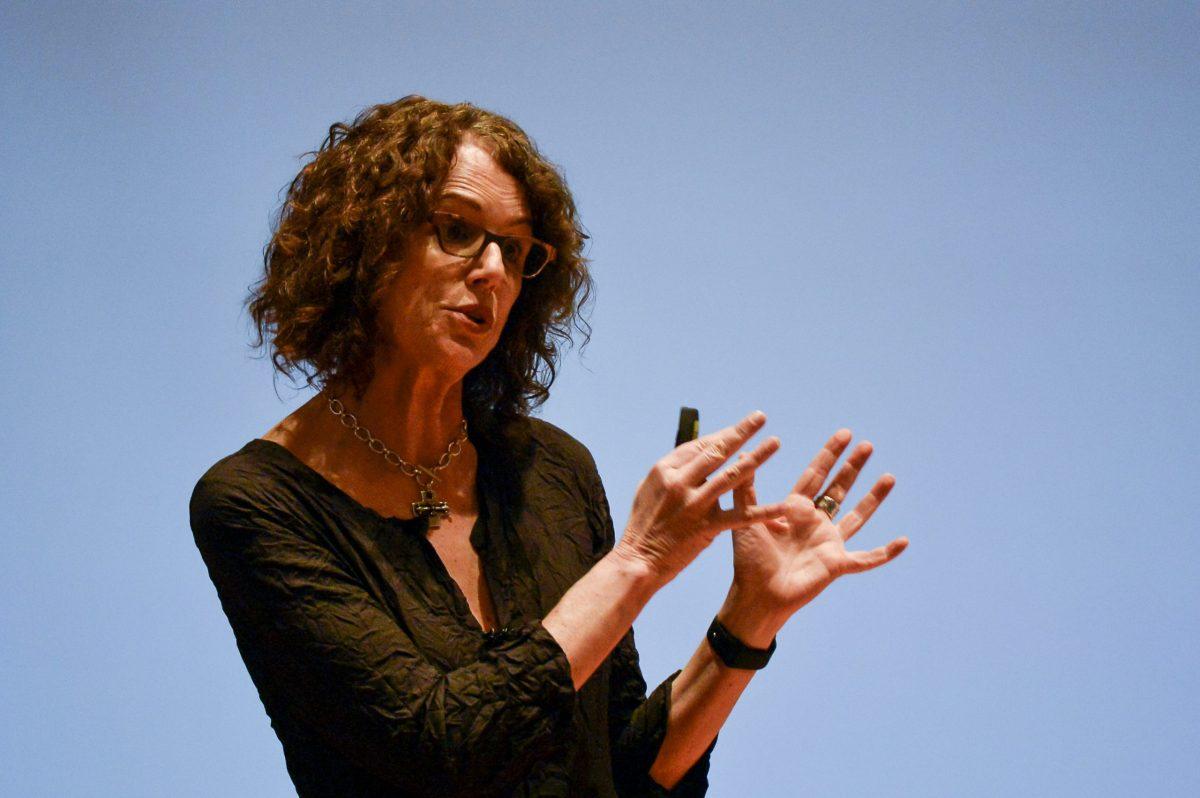Dr. Robin DiAngelo lectures on “why it’s so hard for white people to talk about racism”
Dr. Robin DiAngelo, author of “White Fragility: why it’s so hard for white people to talk about racism,” came to speak in Leonard on Tuesday Oct. 16. The book, released in June 2018, coined the term “white fragility” to reference white people’s inability to tolerate racial stress, which is triggered when their positions, perspectives or advantages are challenged. The function of the white fragility concept is to unblock the challenge and regain white racial equilibrium.
It can be challenging to talk to white people about racism for many reasons, the first being that race is not deemed applicable to white people because we are not taught to see ourselves in terms of color. Dr. DiAngelo outlined five major challenges of addressing racism to white people: One, everyone has opinions, but they can be uninformed; Two, white people see themselves as unique individuals, unaffected by the culture they live in, even though culture leaves nothing untouched; Three, people think that if they don’t see racism, it isn’t there; Four, people use their reactions as a way out; Five, people don’t understand racism as a systemic issue.
Dr. DiAngelo stated that white people may have feelings of being attacked, silenced, shamed and/or insulted whenever they’re challenged on racism and may be quick to withdraw or fight back. Usually, white people are quick to create justification for their racism, such as “my friend is a person of color,” “I voted for Obama,” “I’m from New York/Europe/Canada,” etc. These narratives are, in essence, to establish the white person’s lack of racism, but DiAngelo argued that this is not strong evidence. These narratives exempt the person telling them from any part of the problem, taking racism off the table and closing the discussion completely.
We tend to categorize white people into two categories in regards to racism, DiAngelo defended: good (progressive/not racist) and bad (close-minded/racist). However, this binary is false. Everyone has racial bias. DiAngelo pointed out that often times, progressive white people are the most difficult and can cause the most harm because they are the most likely to be around people of color.
“It felt good to see a lot of white people in the audience that needed to hear the talk and could gain something from it. It was great that the talk happened here on this campus where the majority of the population is white,” said Brianna Ashford-Carroll ‘19.
So what can the Wofford community do to make changes on campus and within the Spartanburg community? Dr. DiAngelo stated that white people need to break with apathy and educate themselves on the nature of racism. She also said that people should be called out on their racism because simply being “nice” does not constitute anti-racism; letting someone use racist language without calling it to attention protects the system of racism.
“They say Wofford is your home, but some of us don’t feel that way. It has gotten a little bit better, but we still have a long way to go. We need to have these events so that hopefully the cultural change will be so people are more comfortable and more diversity will result,” said Ashford-Carroll ’19.
Photo Caption: Dr. Robin DiAngelo spoke in Leonard Auditorium at Wofford College on the concept she has coined, “white fragility.”



























